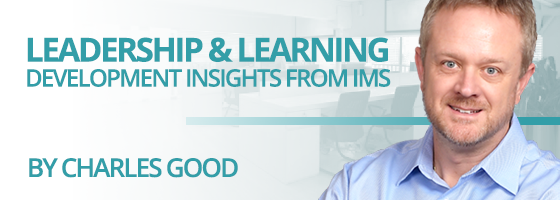According to the Harvard Business Review, “More than education, more than experience, more than training, a person’s level of resilience will determine who succeeds and fails. That’s true in the cancer ward, it’s true in Olympics and it’s true in the boardroom.” Clearly, developing personal resilience should be a primary concern for everyone in today’s rapidly changing world.
Psychologists define resilience as adapting well or ‘bouncing back’ in the face of adversity, trauma and tragedy. However, resilience not only helps you to get through difficult circumstances, it also empowers personal growth. The good thing is that it can be measured, and most importantly, improved according to IMS educator, Dr. Andrew Shatté.
In his recent IMS program, which is based on his best-selling book, The Resilience Factor: 7 Keys to Finding Your Inner Strength and Overcoming Life’s Hurdles, Dr. Shatté covered 7 essential skills for building resilience. Two of these critical skills, which are paying attention to your emotional radars and checking for thinking traps, I discuss below.
PAY ATTENTION TO YOUR EMOTIONAL RADARS
In order to develop your personal resilience you need to get your thoughts out of your head. In order to do this, and become more aware, first recognize and scan for those emotions that your struggle with – see the list below. Second, identify the exact thoughts that are causing those emotions. Finally, write down the thoughts, examine and question them, don’t forget to say these thought aloud.
If done consistently over a period of time, this process will result in more calm around the emotions that you chronically struggle. In many cases, you will realize these thoughts are not real and are likely exaggerated. By noting this, you will develop more calm and peace around these emotions.
- Anger is a belief that our rights have been violated or someone has set out to harm you.
- Anxiety and Fear is a consequence of the belief of a future threat.
- Frustration – results when you feel you have a lack of resources.
- Sadness and Depression – is when there is a belief of a real world loss or loss of self-worth.
- Guilt – is a result of the belief that you have violated another person’s rights.
- Embarrassment – follows the belief of negatively comparing yourself to others.
- Shame – is the consequence that you have violated another person’s rights.
CHECKING FOR THINKING TRAPS
Dr. Shatté and his team have identified seven common thinking traps that directly interfere with our resilience. Each of us tends to be vulnerable to at least two or three of these traps. The following represent some of the more common ones.
- Personalizing – tendency to attribute problems to one’s own doing. Those who see control as coming from within will possess greater resilience up to a certain point. When you personalize, you have a tendency to miss those causes of the problem that are not due to you, and think you can change everything.
- Ask yourself: How much of the problem is due to me and how much is due to others?
- Overgeneralizing – do you use the words ‘always’ and ‘everything’ in your explanations. It tends to occur with personalizing. Personalizers who overgeneralize assassinate their own character, while externalizers who overgeneralize assassinate the character of others.
- Ask yourself: Is there a narrower explanation than the one I have assumed to be true?
- Jumping to conclusions – making assumptions without the relevant data. Do you normally respond impulsively to situations before you have all the information?
- Ask yourself: What evidence are you basing your conclusions on? Are you certain or are you guessing?
- Mind reading – do you think you know what others around you are thinking? As a result, do you think that other people should know what you are thinking? Mind reading is often associated with another thinking trap, jumping to conclusions.
- Ask yourself: Did I make my feelings known directly and clearly? Did I convey all the pertinent information?
Practicing these skills will go a long way to making your more resilient. I will leave you with the sage wisdom of one of the great minds of our time, Rocky Balboa. “It ain’t about how hard ya hit. It’s about how hard you can get hit and keep moving forward. How much you can take and keep moving forward. That’s how winning (and resilience) is done!”
ABOUT CHARLES GOOD
Charles Good is the president of The Institute for Management Studies, which provides transformational learning experiences that drive behavioral change and develop exceptional leaders. Charles is an innovative and resourceful leader who specializes in bringing people together to develop creative organizational and talent strategies that enable business results. His areas of expertise include assessing organizational skill gaps and leading the design, creation and delivery of high impact, innovative learning solutions that achieve business goals.

1 Comment